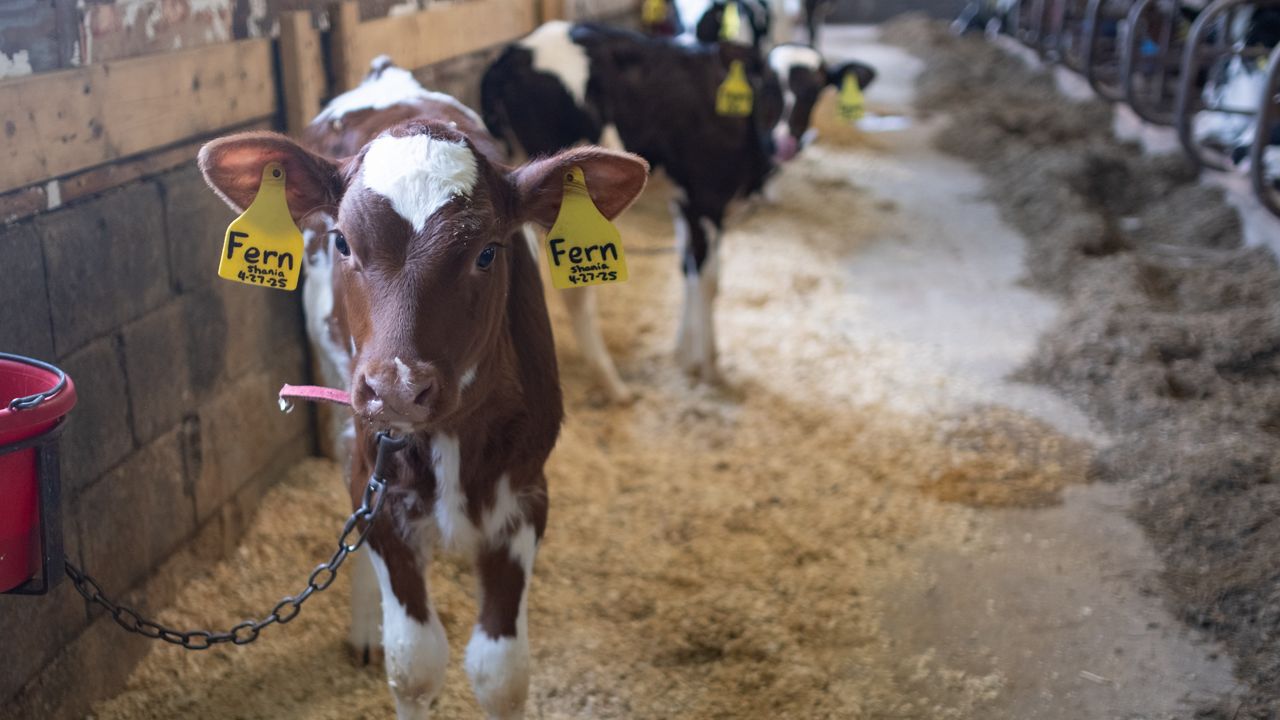New York dairies are getting another boost from state coffers just a week after a little-noticed bill drew widespread scrutiny for its attempt to stifle permits for large dairy farms.
More than 100 dairy farms will split $21 million in state funding through the dairy modernization grant program to implement new equipment and technology.
The Beyer family, which owns and operates Glory Days Farm in Lowville, will add a new and larger bulk milk tank they otherwise wouldn’t be able to afford for their small-scale farm of about 120 cows.
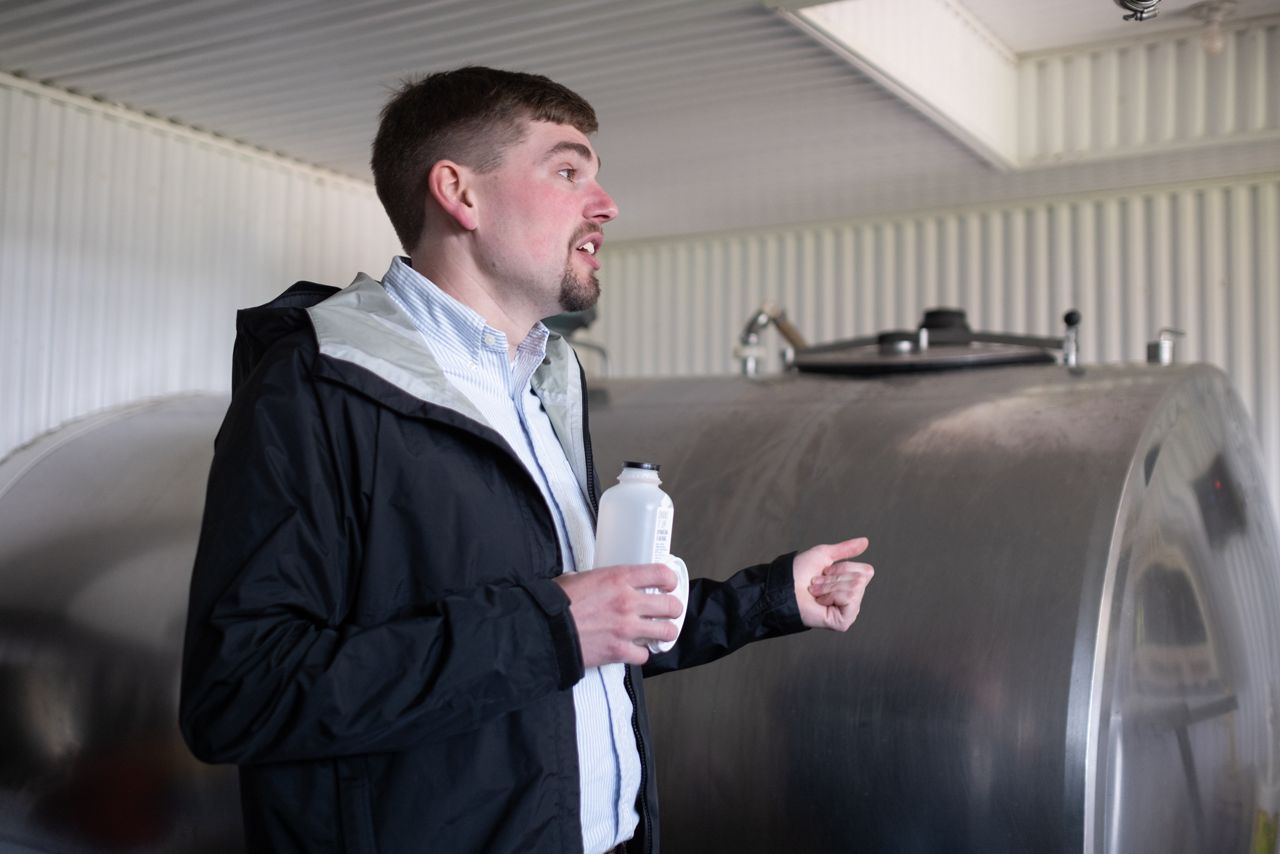
“Right now, we’re on everyday milk pickup, which is OK, but it’s very expensive as you pay for a stop charge every time the milk truck backs in,” said Will Beyer. “We know if our cows are being very productive based on their feed, weather and other factors, sometimes the tank will quite literally overflow.”
New York state produces 16 billion gallons of milk per year, said Commissioner of Agriculture Richard Ball. This funding will improve efficiency for farmers and at upstate New York processors like Kraft-Heinz and Fairlife.
“It is a great opportunity for our farms to enhance what they do on the farm, get more efficient with what they do, be able to expand their capacity and keep pace with all the exciting things that are happening in our processing and industry in New York state,” Ball said.
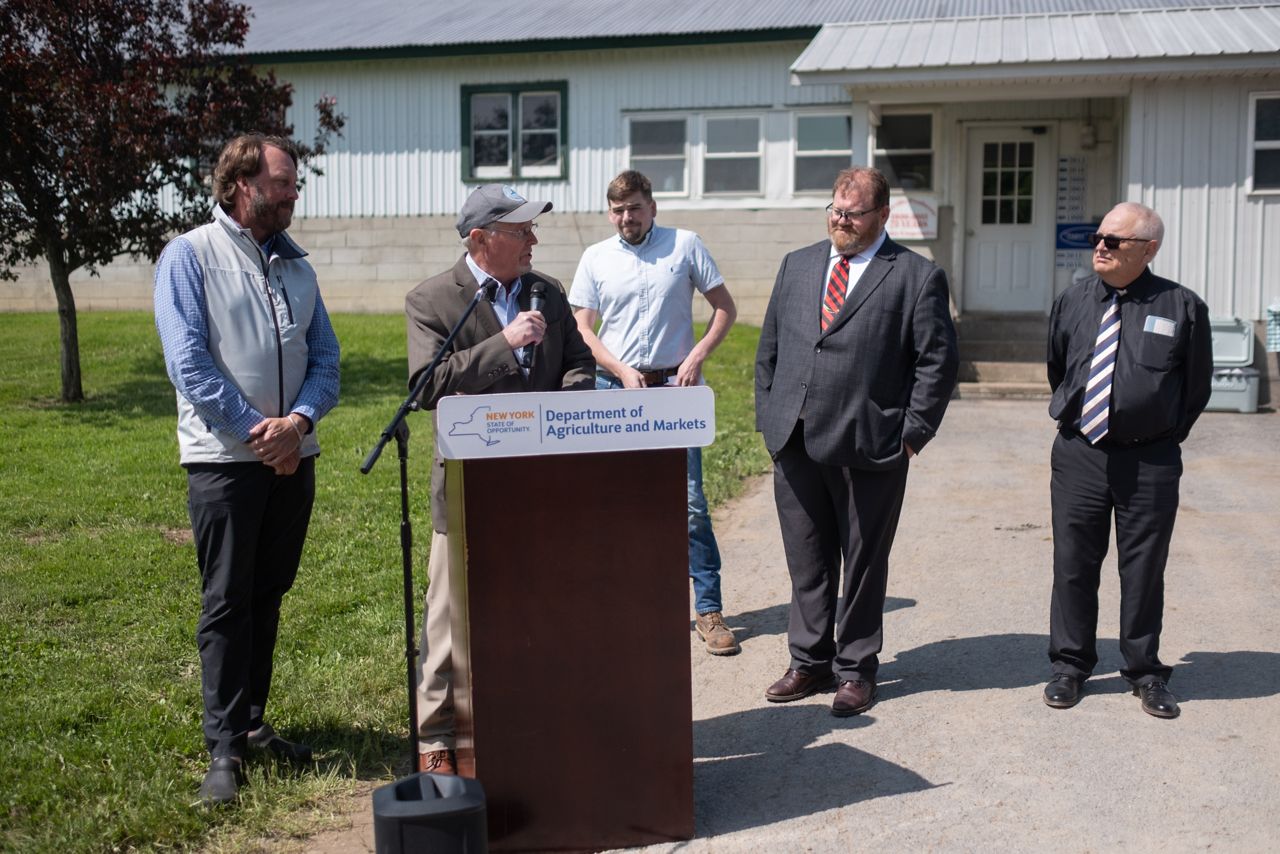
There will be an additional round of $10 million available to farmers from the 2026 budget as well.
The announcement of this funding comes a week after lawmakers slammed legislation proposed in March by state Sen. Jabari Brisport (D-Brooklyn) and Assemblywoman Linda Rosenthal (D-Manhattan) that wouldn’t allow the DEC to issue anymore large-scale certified animal feeding operation (CAFO) permits.
“This preposterous bill limiting cows on farms is another example of politicians from downstate and New York City thinking they know what’s best for upstate farms, businesses and communities,” said state Sen. Joseph Griffo (R-Rome) in a statement.
Republican U.S. Rep. Elise Stefanik, who is a potential candidate for governor next year, also weighed in on the proposed legislation that could impact her North Country district.
“The Democrats’ latest anti-farm bill would block new permits for dairy farms in our communities and dismantle our healthy, natural food supply,” Stefanik said in a statement.
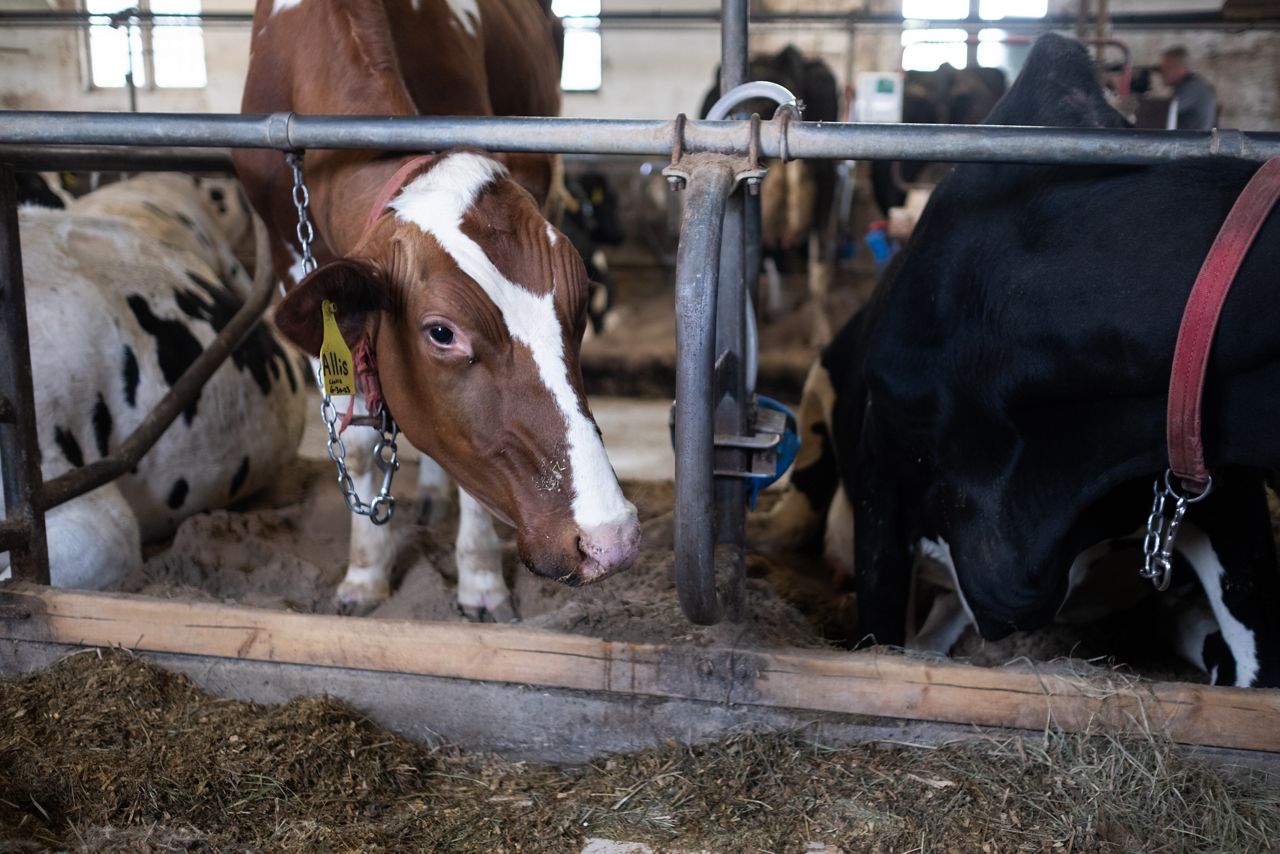
Under current regulations, farms with over 300 animals are required to have a CAFO permit. Farms with over 700 mature dairy cows are considered large CAFOs.
Rather than limiting dairies, Ball pointed to the major projects the state has financially backed that benefit farmers.
“Over the last several years, we’ve made significant investments in processing post-COVID with the need for the food system to grow whether it’s Great Lakes Cheese, Fairlife in Webster, Agri-Mark expanding in the North Country, and now Chobani. We’re looking at a substantial, over a billion-dollar investment. Those are significant pro-agriculture investments in New York state,” Ball said.
But that investment in dairy processing upstate may need another boost.
The Trump administration last week rescinded $170 million for the U.S. Department of Energy, which included $22 million for the Lowville Kraft-Heinz plant.
“This federal funding was promised to Kraft-Heinz to modernize the Lowville factory and support North Country jobs. Taking away this investment is an unjust blow to Lewis County’s biggest employer,” said U.S. Sen. Chuck Schumer (D-N.Y.) in a statement.
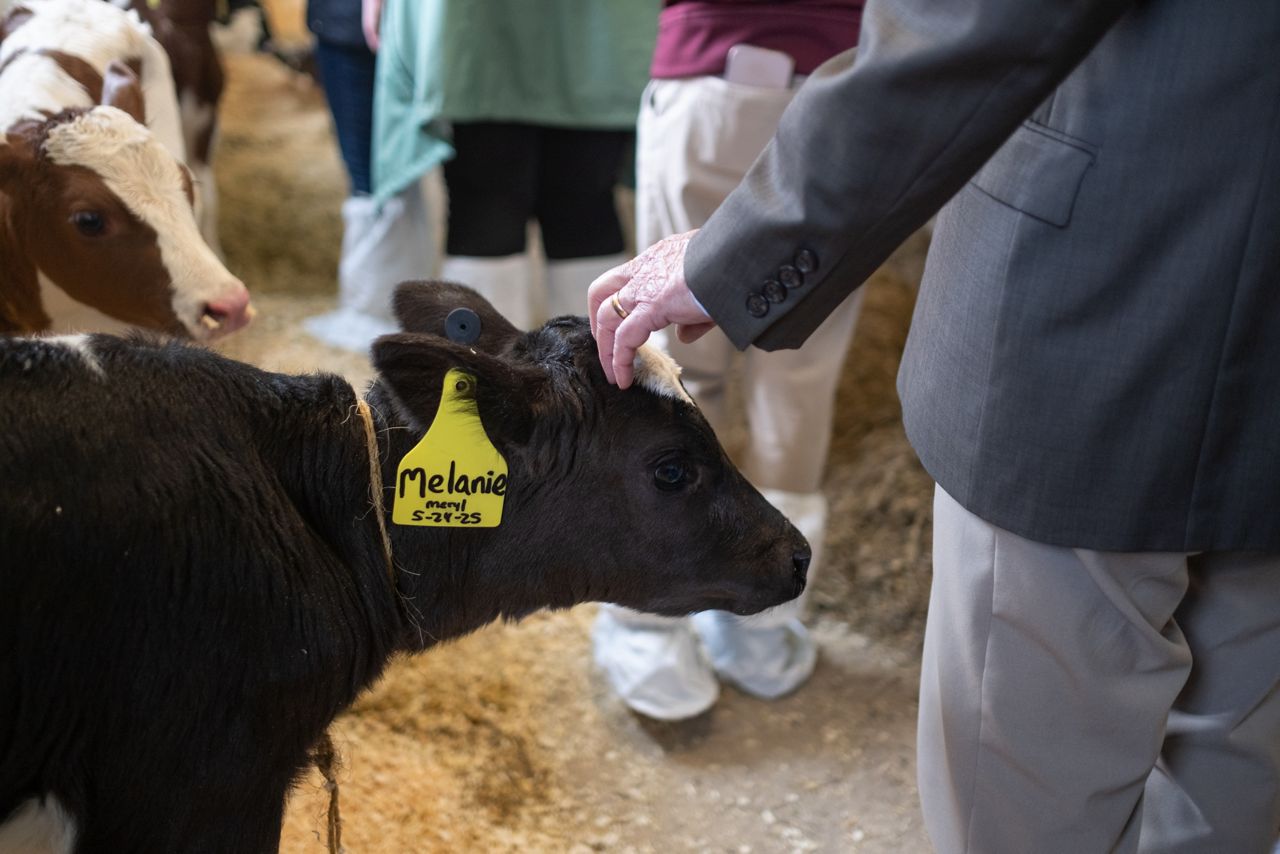
Ball said they have seen several pauses and cancelations of funding at the federal level.
“The Kraft plant has been an important part of the dairy industry in the North County, forever,” he said. “We’ll see what that really means, what that really turns into, but we’ve got an awful lot of good efforts at the state level.”
While there has been uncertainty around the funding cuts, and layoffs in Washington, New York state will continue their efforts to support farmers, Ball said.
“In New York, it’s clear we’re going to continue doing the things that we’ve been doing for decades that are good for our farmers, good for agriculture and good for our interest in seeing the climate stabilize,” he said.


